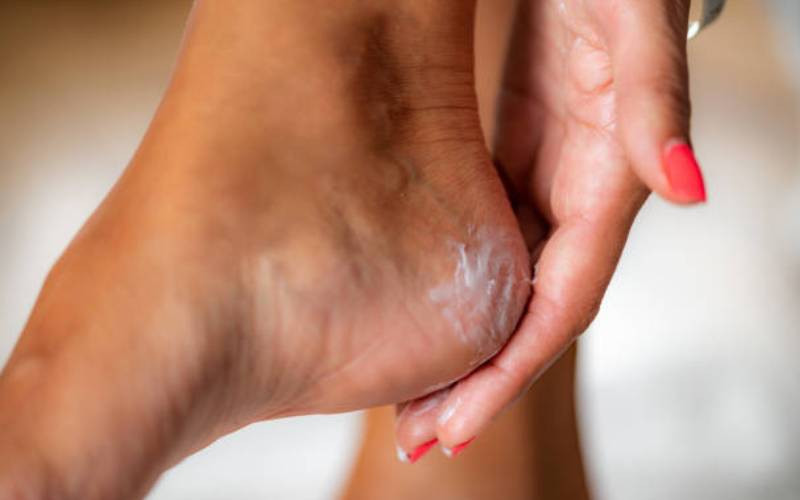
You must have heard about retinoid creams… if you aren’t using them already. Retinoids are topical vitamin A compounds that are used to address a variety of skin woes such as preventing and reducing the appearance of wrinkles and fine lines, removing skin discolouration, repairing sun damage and treating acne.
The vitamin A molecule in retinoid creams penetrate the skin cells to stimulate collagen production and boost cell turnover.
A boost in cell turnover means cells are able to function at optimal capacity and repair DNA damage caused by exposure to the sun and other environmental stressors.
This leads to improvements in signs of aging such as fine lines, wrinkles, discolouration, and uneven texture.
Although retinoid creams were used for skincare since the 1970s, they have surged in popularity in recent years. With the gain in popularity, there has also been an increase in misinformation about this wonderful skincare ingredient.
Let’s explore and debunk some of the biggest myths about retinoid floating around in the skincare circles:
All retinoids are the same
Nothing could be further from the truth. First, “retinoid” and “retinol” do not mean the same thing. Retinoid is an umbrella term for any topical product that contains a vitamin A derivative.
Retinol is normally used to refer to weaker over-the-counter products such as retinol palmitate, or retinol propionate (a.k.a. pro-retinol). On the other hand, retinoid refers to stronger, prescription-level drugs like tretinoin (the generic name for Retin-A), tazarotene, and adapalene. Retinoids contain retinoic acid, the most active form of topical vitamin A. Retinol requires to be converted into retinoic acid in the body, which makes it less potent.
You need a prescription to buy retinoid, while retinols are included in skincare products and can be bought over-the-counter. However, both retinols and retinoids work towards the same goals: anti-aging, treating acne, and improving discolouration. Retinol is advisable for beginners, since it is less likely to irritate your skin.
Retinoids thin your skin
Since retinoids lead to skin peeling, there’s a common misconception that they cause skin thinning and degrade the skin’s natural barrier. However, retinoids do the exact opposite – they stimulate collagen and elastin synthesis and therefore help “thicken” your skin and strengthen its barrier.
The ingredient only thins the layer of dead cells on your skin that makes your skin look dull and lacklustre. The exfoliation of dead skin cells not only helps your skin look radiant and youthful, but it also signals to the basal cell layer of the epidermis to produce brand new cells for a healthy glow. In simple words, unlike an exfoliating scrub whereby you’re physically sloughing off dead skin, which can damage skin barrier when overdone, proper retinol use encourages the skin to regulate its own cell turnover.
If you have negative side effects from retinoid such as redness, peeling, flakiness and general inflammatory behaviour, it doesn’t mean that your skin is thinning. It simply means that the retinoid you’re using is too potent for your skin, or using it too frequently – particularly if you’re a beginner. It could also mean that your skin doesn’t tolerate retinol at all – in which case you should stop using it.
You shouldn’t use retinoid during the day
Many people think that it is unsafe to use retinoid during the day. This is because retinoid breaks down in sunlight, rendering it less effective. This is the main reason why retinol and retinoid creams are sold in metal tubes or opaque containers and are recommended for night use.
However, there is no direct harm to your skin when you use retinoids during the day. Despite concerns, studies have shown that retinoids don’t increase the risk of sunburn. But don’t take this as permission to go outdoors without proper sun protection. It would be very counterproductive to invest in expensive retinoid skincare products for anti-aging and expose yourself to more sun damage.
If you are worried about the effectiveness of retinoid and spend a lot of time outdoors, look for the newer formulations that are not deactivated by sunlight. If you have just started using retinoid, your skin might be a little more sensitive as it adapts, which can make it more likely to burn.
Retinoids deliver instant results
Retinoid creams are pretty cool but to see good significant results, you have to use them consistently for several weeks or months. With over-the-counter retinols, it can take up to six months while prescription retinoids can have significant improvement in three months.
You will see improvements faster if you are using retinol to treat acne or even out texture. But it might take several months if your main concerns are treating pigmentation or fighting signs of aging. – the best results take six to 12 months.
Don’t let impatience lead to overusing retinoid – this is likely to cause dryness and irritation. Dermatologists recommend using retinoids only every other day at the beginning, and gradually working up to nightly application.
 The Standard Group Plc is a multi-media organization with investments in media platforms spanning newspaper print
operations, television, radio broadcasting, digital and online services. The Standard Group is recognized as a
leading multi-media house in Kenya with a key influence in matters of national and international interest.
The Standard Group Plc is a multi-media organization with investments in media platforms spanning newspaper print
operations, television, radio broadcasting, digital and online services. The Standard Group is recognized as a
leading multi-media house in Kenya with a key influence in matters of national and international interest.



